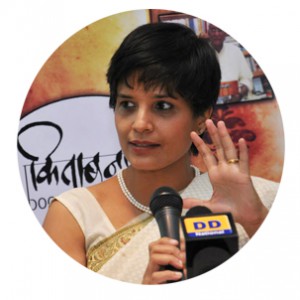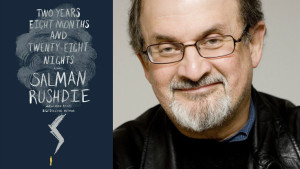Literati: ” A book in any other form” ( 20 December 2015)
(My column, Literati, in the Hindu was published online on 19 Dec and in print on 20 December. Here is the link: http://www.thehindu.com/books/literary-review/jaya-bhattacharji-rose-on-the-reading-experience/article8005049.ece )
 Book-lovers want to be satisfied with time spent reading. It could be in different formats as long as the reading transports and immerses the reader into a different world
Book-lovers want to be satisfied with time spent reading. It could be in different formats as long as the reading transports and immerses the reader into a different world
My daughter Sarah and I have a bedtime ritual. She brings along a book (if I am lucky, it is only one!) to read. She plumps up her pillow, tucks herself into the crook of my arm and orders, “Read.” It is a long process since I have barely begun to read when her questions come tumbling out or she reads out words in no particular order before I do! She is not yet six, so requires assisted reading. To her the length of the book is immaterial. It is the joy of storytelling, appreciating different styles of illustrations and discovering new landscapes. Sometimes when there is that unnerving-silence-which-should-not-be with a kid at home, I discover Sarah lying on her tummy flipping through her books.
She is charmed by the Kingfisher Encyclopedias, especially the scatological one Don’t Flush, she wants to try the tricks in DK’s illustrated Children’s Book of Magic and squeals with delight when she opens up The Pop-Up Book of Ships or reads over my shoulder L. Pichon’s hilarious The Brilliant World of Tom Gates. She strokes the magnificently detailed illustrations by P.J. Lynch in Susan Wojciechowski’s The Christmas Miracle of Jonathan Toomeyand is very satisfied to discover it matches the text when she impatiently asks, “Show, show!”
Grown-ups are no different. They too want to be satisfied with time spent reading. It could be in different formats as long as the reading transports and immerses the reader into a different world as does Helen MacDonald’s moving memoir H is for Hawk. In 2015, it is claimed printed book sales surpassed ebook sales, yet reading on smartphones is on the upswing as is evident by the establishment of Juggernaut Books and the launch of Pratham Books’s Storyweaver. A survey of bestsellers and critics concluded that the average length of books has increased by 25 per cent in the past five years. For instance, Man Booker Prize winner 2015 Marlon James’s A Brief History of Seven Killings, Orhan Pamuk’s A Strangeness in my Mind and Hanya Yanagihara’s deeply disturbing A Little Life. Yet there has also been a noticeable boom in short stories with Colum McCann’s absorbing but stunningly painful Thirteen Ways of Looking, the incredible range of writing exhibited in the late Brazilian writer Clarice Lispector’s Complete Stories translated by Katrina Dodson with plenty more being published in stupendous online spaces like Guernica, The Literary Hub, The Electric Literature, Asymptote and Words without Borders. In fact, the popularity of translations to access world literature can no longer be ignored. Seagull Books, based in Kolkata, announced its Arab list to be launched in 2016. According to the Bookseller, reclusive Italian writer Elena Ferrante’s has made in the U.K. “£1.6m this year through BookScan, 1,254 per cent up on her sales in 2014”. Chad Post in his Three Percent blog post on translation databases in the U.S states that Amazon Crossing has been responsible for a large number of translations, surpassing many independent presse (http://bit.ly/1QrGxV7). Indian publishers too are increasing their translation programmes with notable titles of this year being Daya Pawar’s Baluta (translated from Marathi by Jerry Pinto, Speaking Tiger), Tiruvalluvar’s The Tirukkural (translated from Tamil by Gopalkrishna Gandhi, Aleph), Govardhanram Madhavram Tripathi’s Sarasvatichandra Part 1: Buddhidhan’s Administration (translated from Gujarati by Tridip Suhrud, Orient Black Swan), Bhisham Sahni’s Today’s Pasts: A Memoir (translated from Hindi by Snehal Shingavi, Penguin), Upendranath Ashk’s Falling Walls (translated from Hindi by Daisy Rockwell, Penguin), Intizar Husain’s The Sea Lies Ahead (translated from Urdu by Rakhshanda Jalil, HarperCollins) and the Hindi edition of Salman Rushdie’s Joseph Anton published by Vani Prakashan.
With this mish-mash of emerging “trends” in international publishing, it is not surprising for firms to ensure a reliable stream of income by publishing manuscripts of dependable storytellers. For instance Wind and Pinball, the early novellas of Haurki Murakami, Ideal: the novel and the play by Ayn Rand, Go Set a Watchman, an early draft of To Kill a Mockingbird by Harper Lee, Bedtime Story by Kiran Nagarkar, The Mountain Shadow by Gregory Roberts, the to die-for-richly illustrated editions of George R.R. Martin’s A Knight of the Seven Kingdoms (illustrator: Gary Gianni) — prequel novellas to A Song of Ice and Fire and J.K. Rowling’s Harry Potter and the Philosopher’s Stone (illustrator: Jim Kay).
I cannot say whether Sarah will become a voracious reader, but she has unknowingly discovered that reading is like meditation. The same holds true for adults. The genre is not always crucial to the experience.





